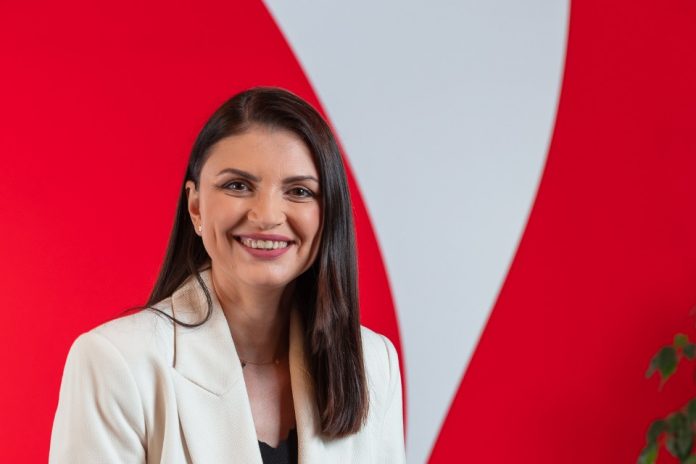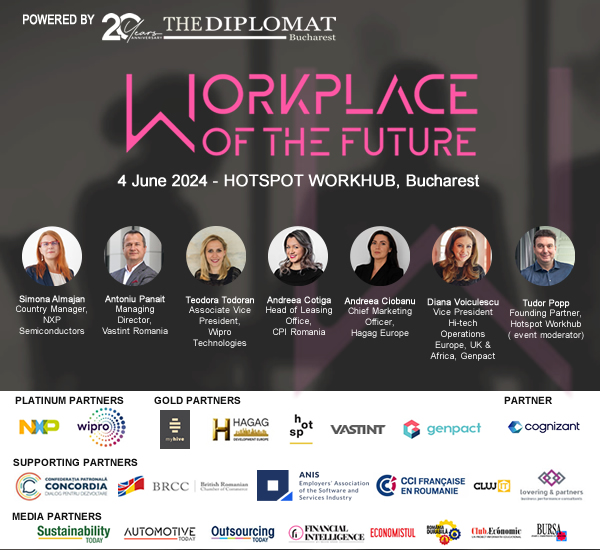“Promoting circularity is preventing beverage bottles from getting recycled into other industries such as textiles for example. The EU should prioritize bottle-to-bottle recycling. This way, beverage bottles will be converted into new beverage bottles and close the loop. The Deposit Return System (DRS) is a great example of how circularity is a success story for our packaging when a well-functioning DRS is in place and consumers are fully engaged in returning their empty bottles to be collected, recycled and/or reused by beverage producers. Therefore, it is essential they have first access to recycled material feedstock to be able to fulfill the legal targets and their sustainability commitments related to using recycled materials for new packaging,” Alice Nichita, Corporate Affairs & Sustainability Director, Coca-Cola HBC told Sustainability-Today.
“The biggest challenge is for us all to understand that the steps towards a circular economy and good waste management can only be taken together, if we all get involved. It takes a long-term effort and only by working together, customers, suppliers, consumers, across the value chain, through the synergies created by these partnerships and by supporting common causes, can we achieve the results we want.”
How would you describe the evolution of Coca-Cola HBC in the past years from a sustainability perspective?
We approach sustainability as an integral part of our operations and an investment in the future that brings us long-term value. All the initiatives we undertake, whether we’re talking about environmental impact, use of natural resources, the portfolio we offer to consumers, the way we support the development of our colleagues and the communities where we operate – all start from a simple desire to contribute to change for the better by acting responsibly for the future.
We set ourselves clear goals and monitor results closely. To walk the talk, we have created a dedicated sustainability strategy structure within Coca-Cola HBC. The Corporate Affairs & Sustainability department increased its role and responsibilities, overseeing how the sustainability commitments are embedded in all operational aspects of the business and tracking their achievement.
Mentioning just a few of the progress made in recent years, we recall that from 2017 to 2021, we have reduced our water intensity by more than 6 percent and we are currently the only beverage manufacturer in Romania with Alliance for Water Stewardship certifications for all 3 of our plants. AWS is the most important certification for companies aiming for efficient water management.
We have reduced carbon emissions from direct operations by switching to 100 percent renewable and clean electricity and by gradually increasing the use of rPET in our packaging portfolio. At the same time, we replace refrigeration equipment supplied to customers with energy-efficient ones that consume 50 percent less energy, and by 2022, we have reached 48 percent energy-efficient coolers.
All our packaging is 100 percent recyclable and currently 20 percent of our total PET bottled portfolio (the entire Dorna mineral water portfolio) is bottled in rPET (recycled PET). Our goal, as a Group, is to increase rPET usage to 35 percent by 2025 and 50 percent by 2030, but in Romania we aim to go above this threshold. To do this we have a 10-million-euro investment underway in our Ploiesti plant in a rPET decontamination unit that will position us as the first beverage producer in Romania to produce rPET in-house.
Our efforts are consistent, and we persevere year after year, which also brings us recognition in the industry. Coca-Cola HBC has been confirmed as the most sustainable beverage company in the world, according to the Dow Jones Sustainability Index results in 2022.
What challenges have you faced during 2022?
The challenges faced in 2022 are common for the entire FMCG environment: high inflation, diminished consumers’ trust, and a lower disposable income. Though, regardless of the context and the challenges that arise, we do not deviate from the sustainability goals we have set ourselves. The sustainability strategy cannot be put on hold, nor can it fluctuate from year to year. We have set ourselves bold targets up to 2040 (through the ‘A World Without Waste’ and ‘NetZeroby40’ programs) and in 2022 we continued to make significant progress towards these goals.
What solutions and sustainability programs are most targeted by your company in 2023? What do you anticipate in terms of sustainability aspects to be tackled in the future?
We are constantly involved in supporting communities through the sustainability platform of the Coca-Cola System in Romania – After Us – and we run projects aimed at both environmental protection with the objective of collecting recyclable waste separately and managing and protecting water resources, and initiatives aimed at supporting youth and social entrepreneurs, through which we want to have a positive social impact in communities. There is much to do and together with our partners we will continue to develop sustainable and positive impact projects.
The reduction of CO2 emissions will remain the most critical aspect to be tackled in the future, by all companies. We are committed to reducing emissions to net zero across the whole of our value chain, by 2040. To reach this goal, we will reduce our direct emissions to an absolute minimum, and we will work in partnership with our suppliers to eliminate 90 percent of our carbon footprint that results from third parties. Wherever we can’t eliminate emissions entirely, we will mitigate or remove those by investing in other climate protection measures. But our primary goal continues to be the systematic reduction of emissions. Via an existing, approved science-based target, by 2030 we will reduce our value chain emissions in scopes 1, 2 and 3 by 25 percent, with a further 50 percent reduction in the following decade. This commitment is the ultimate destination of a journey that we started many years ago.
What are your main concerns for the foreseeable future?
We face various challenges in terms of ensuring a steady pace of development and investments on our business partners’ side, especially in the SMEs area. The post pandemic context paired with the geopolitical crisis evolution puts a lot of pressure on existing budgets, and in some cases even endangers the businesses’ existence. Moreover, macroeconomic insecurity and the pressure on the individual wallet urge the consumers to choose affordable products, even if they understand and appreciate sustainable ones.
On a more industry focused opinion, promoting circularity is preventing beverage bottles from getting recycled into other industries such as textiles for example. The EU should prioritize bottle-to-bottle recycling. This way, beverage bottles will be converted into new beverage bottles and close the loop. The Deposit Return System (DRS) is a great example of how circularity is a success story for our packaging when a well-functioning DRS is in place and consumers are fully engaged in returning their empty bottles to be collected, recycled and/or reused by beverage producers. Therefore, it is essential they have first access to recycled material feedstock to be able to fulfill the legal targets and their sustainability commitments related to using recycled materials for new packaging.
In your perspective, which are the main challenges of circularity, waste management, recycling in your industry? How do you engage employees and business communities in these actions?
The biggest challenge is for us all to understand that the steps towards a circular economy and good waste management can only be taken together, if we all get involved. It takes a long-term effort and only by working together, customers, suppliers, consumers, across the value chain, through the synergies created by these partnerships and by supporting common causes, can we achieve the results we want.
What kind of measures and initiatives should be tackled more to generate the strongest impact in terms of preserving and creating a stronger green environment?
2023 is the year in which the Deposit-Return Scheme, the largest circular economy project ever implemented in Romania, will become operational. We have supported and continue to support the soft drinks industry’s efforts to implement it and are doing our utmost to ensure that it will have immediate results with significant impact on the Romanian circular economy.




